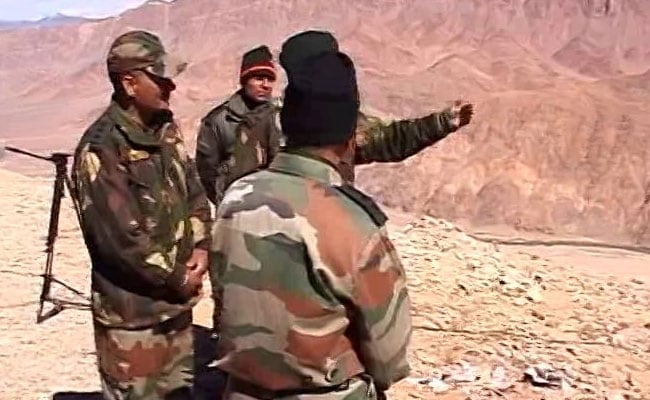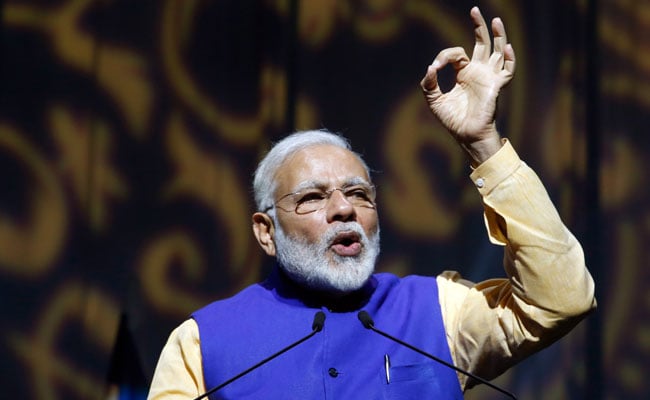This column has recently explored in extenso the complex Nepalese perspective on India in the light of the blockade which the Modi government instigated for several months from December 2015 onwards that has totally unravelled whatever goodwill Modi's June 2014 visit to that country might have earned for us. In this Opinion piece, I want to turn to our fraught relations with Bhutan, a country that has gone out of its way to consistently maintain the best of relations with us. The little-known friction points with Bhutan have arisen, as with Nepal, by Indian government pettiness after the initial surge of warmth when Modi made Bhutan the first country he visited on becoming Prime Minister.
Bhutan has traditionally looked south towards India, not north towards Tibet and China. This is rooted in history, spread over 500 years. Back in 1616, Zhabdrung Ngawang Namgyal, the head of the prestigious Ralung monastery in Tibet, found himself in danger in his dispute with the local Tsangpa ruler. Zhabdrung decided to take off north for Mongolia to save his order and himself, but a visiting Bhutanese monk persuaded him to consider instead "turning his horse's head south" to cross the high pass over Gassa into Bhutanese territory. Legend has it that Zhabdrung had a dream that night in which he saw a raven flying south and took that as the omen to determine his destined direction. And as he set out, a large raven really did appear overhead and accompanied Zhabdrung all the way to Gassa.
Zhabdrung went on to establish the Drukpa Kagyu school of Buddhism as the dominant religion of Bhutan and in the process virtually created the nation of Bhutan. Over the next half millennium and down to the present day, Zhabdrung and his later incarnations have held spiritual authority in Bhutan, sometimes in harmony with the temporal authority and sometimes against. The problem was finally resolved when the fourth King of Bhutan, early in the 21st century, was declared Zhabdrung's incarnation, thus combining temporal and spiritual authority in one person.
The southward orientation of the Bhutanese mind since at least the time of the first Zhabdrung was reinforced by repeated invasions from Tibet - at least ten between 1617 and 1735 - that have made the Bhutanese mindset wary of their neighbours to the north and more trusting of what lies to their south. The Bhutanese on their own repulsed every one of these numerous Tibetan invasions until Pholney, who rose to become ruler of Tibet because of the patronage and assistance he got from the Manchu Emperor, launched an invasion in 1730 to leverage political disunity in Bhutan to bring Bhutan under Tibetan rule. After three years of war and negotiation, the Tibetans finally carried off a treaty that they rushed by a special emissary to the Emperor in Peking. (The Bhutanese, to this day, do not recognize the 1733 treaty as indicating any submission to China, but as securing Chinese imperial recognition of Bhutan as a separate nation). Thus, the only war the Bhutanese lost to Tibet was when the Tibetan overlord had the backing of the Chinese. The Bhutanese are not likely to forget that when placing India and China in the balance. The horse's head continues to be turned to the south!

Bhutan has traditionally looked south towards India, not north towards Tibet and China.
Within a year of Mao seizing power in Beijing, the Chinese PLA appeared in Tibet, but Bhutan was reassured that their sovereignty and territorial integrity would be protected through their treaty with India. The Dalai Lama's fate did not befall them. They stood by India through India's wars with China and Pakistan. And India stood ready to stand by them as they moved to develop and modernize their nation.
So there could hardly be a more auspicious heritage of Bhutan favouring, indeed, cherishing, far closer relations with India than they have ever had, or wish to have, with the Chinese. The tragedy is that the Modi government is frittering away in three years the goodwill earned over 500 years.
First and foremost is what the Modi government has done to Bhutan's principal national resource, hydropower. With just two hydropower stations in operation, at Chhuka (1800 MW) and Tala (1400 MW), hydropower provides 40 percent of Bhutan's government revenue and accounts for a quarter of its GDP. The Manmohan government set the ambitious target of "10,000 MW by 2020" - doubling the earlier pledge of "5000 MW by 2020" - as the defining parameter of Indian cooperation in hydropower to hugely boost both Bhutan's GDP as well as its government revenues.
The projects were to be undertaken with financing by India on the earlier formula: 60% grant, 40% loan on easy terms. The Modi government have rubbed the Bhutanese the wrong way by switching the financing pattern to 30% grant and 70% loans. Interest rates on loans have also been raised.
Moreover, whereas Chhuka and Tala are wholly owned by the Bhutan government, and operated by their PSE, Druk Green, Modi's men are insisting that at least four of the projects to come up (Chamkarchhu, Kholongchhu, Wangchhu and Bonakha), planned to generate a total of 2120MW, must be joint ventures with Indian Public Sector Enterprises, with Indian companies holding at least a 51% stake in them. The JVs are stuck because the Indian PSEs insist on having "more managerial control" and have "refused to come up with agreed financing" (Tenzing Lamsang, Indian Express, 30 July 2017). Two of the most important projects, Sunkosh (2500MW) and Kuri Gongri (2640MW), based on reservoirs not run-of-the river and, therefore, capable of year-round generation of power for year-long revenues and year-long GDP augmentation, are stuck in the doldrums because terms are not agreed.
While this haggling goes on, India gets most of the power generated by Bhutan at the "cheapest tariff" in the world (Rs.1.80 per unit when the going rate within India is Rs.7-8 per unit). Meanwhile, as Wikipedia points out, "barely 66% of Bhutanese households and 39% of its villages are electrified".
Worst of all, from the Bhutanese point-of-view, India's power minister, Piyush Goyal, boasts that India has become self-sufficient in power. Where then, wonder the Bhutanese, are they going to sell all the power they are getting set to generate?
The concern is acute because virtually all of India's development assistance to Bhutan's five-year plans is swallowed by Bhutan's huge trade deficits with India. Whereas our assistance to Bhutan's current five-year plan is of the order of Rs 4,500 crore, a single year's trade deficit amounts to Rs 3,200 crore, ninety percent of which is with India. This can be offset only by India generously investing in Bhutan hydropower and then buying that power at remunerative prices that, at least in some measure, reflect Indian market prices. While that hangs in the balance, Bhutan's solvency is threatened because Bhutan's government debt, owed mostly to India, has already nearly touched 120% of GDP.

Modi government rubbed Bhutanese the wrong way by switching financing pattern to 30% grant and 70% loans.
Other irritants include the South Asia Motor Vehicles Agreement that was rejected by the Bhutanese National Assembly (Parliament) but then signed at India's behest, but the simmering discontent at this arm-twisting has found expression in the Bhutan National Assembly - now a fully democratic, elected body - refusing authorization to their government to sign up on BBIN (Bhutan-Bangladesh-India-Nepal), the connectivity project championed by India.
That one fact illustrates that Bhutan's democracy has come of age. The Modi dispensation failed to take cognizance of this in their dealings with Nepal. This has resulted in the present shadow boxing with Kathmandu. They also seem to be making the same mistake in their dealings with Bhutan, now a vibrant, restive, multi-party democracy that insists on holding its government accountable to the Opposition and the people. Nothing matters more to both these nascent democracies than demonstrating to their people that they are assiduously upholding sovereignty, independence and national honour. Our dealings must be founded in full recognition of this fact. We are no longer dealing with a royal coterie or a monarchical clique or palace factions, but with a free and proud people who expect their elected governments to place their national interest first and safeguard that interest in relations with their giant neighbour to the south. The Modi government is too full of the arrogance of power to rise to this new diplomatic challenge.
After all, the Chinese did offer Bhutan a much larger slice of disputed territory in the north, where Bhutan has higher economic stakes, in exchange for the relatively smaller Doklam plateau, where Bhutan's domestic interests are extremely limited. Yet, the Bhutanese, recognizing India's security stake in the plateau, refused the deal. Moreover, their statement of 29 June on the military stand-off between China and India on Bhutanese soil took the wind out of China's polemical sails. When they are that sensitive to our needs, does not India need to be even more sensitive to their economic requirements, their sovereignty and the pulls and pressures of their democracy?
We need to match Bhutan's national tradition of Driglam Namzha, translated by Tenzing Lamsang in his article cited above, as the Bhutanese tradition of "stooping to conquer". We, and most particularly Modi himself, need to absorb a healthy dose of Driglam Namzha.
(Mani Shankar Aiyar is former Congress MP, Lok Sabha and Rajya Sabha.)
Disclaimer: The opinions expressed within this article are the personal opinions of the author. The facts and opinions appearing in the article do not reflect the views of NDTV and NDTV does not assume any responsibility or liability for the same.


